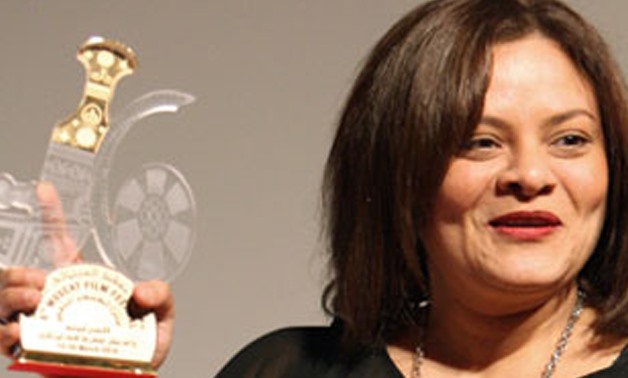
kamela abu zekri- Courtesy photo
CAIRO – 7 June 2017: The film director, Kamela Abu Zekri, is deeply involved in protraying the issues of women and their troubles in society through television and cinema. Her feminist work wins over her audience because they deliver the message of each story through detail and unconventional takes on the issues presented. Her involvement in women’s issues are paralleled by her team that manage to portray her concerns in a successful manner.
This year, she delivers her work in the form of Wahet al-Ghoroub (Sunset Oasis.) The Ramadan series, set in the late nineteenth century, follows the the story of the Egyptian police officer Mahmoud Abdel-Zaher, portrayed by Khaled al-Nabawi, in the beginning of
the time of the British occupation of Egypt.
After being accused of practicing some of the revolutionary ideas of Jamal al-Din al-Afghani, Zaher is transferred to the Siwa oasis alongside his foreign wife Catherine, portrayed by Menna Shalaby, who is fascinated by Egyptian history and archaeology.
Abu Zekri, along with her usual partner writer Maryam Naoum, focus on Catherine’s character to deliver the feminist messages of the story at a time where women were always regarded as second to men. This year, Abu Zekri and Naoum are joined by writer Hala al-Zughandi, who participated in the writing of several episodes.
Abu Zekri was not content with only having female writers and also worked with female director of photography Nancy Abdel-Fatah and stylist Reem al-Adl to add her feminine take on the show. Moreover, she asked director Mariam Abu Oaf to assist her with the filming and camera work, as to finish the series in a shorter time.
Abu Zekri’s bias towards women is not uncommon or unheard of. In many of her previous works, she has prioritized only women. Last year’s Youm Lel Setat (Day for Women) would be an example, since both the story and the title of the film present women. The cast was dominated by women, including actresses Nelly Karim, Nahid al-Sebaey, Halla Sedky and Elham Shahin, who also starred in and produced the film. Some male actors worked acted alongside the actresses, such as Farouk al-Fishawi and Mahmoud Hamida. The script was written by Hanaa Atiya.
Segn al-Nesaa (Women’s Prison) written by Maryam Naoum and starring Nelly Karim, Dorra, and Ruby, portrayed the hardships experienced by the women in their society.
The famous series Zat also completes Abu Zekri’s trio, since it was also written by Maryam Naoum and starred Nelly Karim. In 2009, the film Wahed-Sefr (One-Zero) also features the trio of women and focuses on the story of a woman’s life pending divorce from the court.

Comments
Leave a Comment